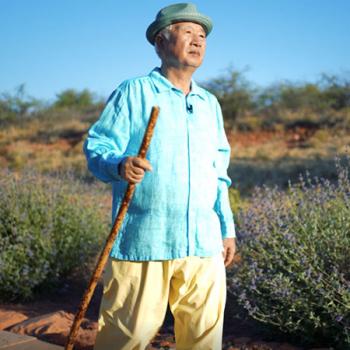
As people live longer, they are spending more time than ever in retirement. The average time is now over 18 years for both men and women, and for many it is much longer than that.
If a person retires at 65 and then lives to be 100, he or she will have spent well over a third of that lifetime, 35 years, in retirement! The number of centenarians has quadrupled since 1990 and the demographic continues to grow quickly, so that scenario is quite possible for many.
If that happens for you, how do you think you will spend that time? Assuming that you will live 35 years after retiring and you have eight hours a day to engage in meaningful activity, that comes to about 100,000 productive hours after your working life is done. In the old days, when people did not expect to live more than a decade in retirement, I suppose it was okay to just while away the hours, rocking in the rocking chair and filling in crossword puzzles.
But 100,000 hours is just too many to waste. So what will you do? Personally, I think everyone should make a clear plan for how they plan to use all that time. Here are some tips:
1. Take care of your health, especially your mobility.
That might seem like obvious advice, but younger people rarely live with a 100+ lifespan in mind. Of course, eat well and exercise, but also guard your mobility by taking good care of your muscles and joints. Researchers have found that losing the ability to walk well dramatically decreases enjoyment of life and cuts years off one’s lifespan.
2. Plasticize your brain.
The brain maintains the ability to create new connections throughout life, but that ability is accentuated if you challenge your brain regularly. Instead of always returning to the same old habits and hobbies, try things that are difficult for your brain, such as learning a new language, taking a difficult math class, or trying oil painting for the first time.
3. Set big goals.
With so much life still ahead of you, it would be a mistake to just live day-to-day with no plan. Everyone needs a goal to keep them motivated and looking forward to tomorrow. Goals are not just for younger people, so choose something you’ve always wanted to do and go for it! It’s not too late to have a second (or third or fourth) career.
4. Give back from your heart.
If you have lived a long, healthy life, you have much to be thankful for, so it is a time to give back some of what you have been given. Young people need your wisdom and guidance, so look for opportunities to support and nurture the next generation or to bring healing to those who are not as fortunate as you are now.
5. Master something new.
In his book Outliers, author Malcolm Gladwell claims that it takes 10,000 hours to master a skill, such as learning to play an instrument well or excelling at a sport. With 100,000 hours at your disposal after retirement, you have more than enough time to start something new and become very good at it.
6. Live for spiritual fulfillment.
Youth was the time to live for material accumulation and worldly status. But in your older years, you cannot afford to ignore your inner world any longer. You can now ask yourself, “Who am I?” and search for the answers from within, not from the world outside.
In my new book I’ve Decided to Live 120 Years, I recommend that you plan not just for a 100-year life, but for a 120-year life. Biological research says that the human body holds the potential to live 120 years, and maybe even longer if assisted by technologies now on the horizon. So, why don’t we look for living our bodies’ fullest potential? I believe a 120-year life is perfectly possible, especially if we take steps to live healthfully with a deep sense of purpose.
Taking this long-range view of life can make a real difference in people’s lives, allowing them to feel good about getting older as they see the unique opportunities it can bring. More importantly, though, I think this viewpoint on aging is important for the world, which desperately needs the untapped wisdom and talents of older people.
















